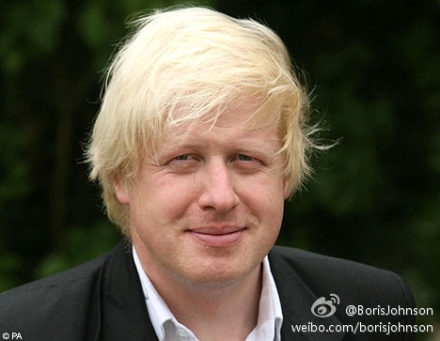
By Thanmayi Rachapudi and Paul Pennay
It started with prominent members of the sizable community of foreigners living in China, quickly moved on to celebrity businessmen and performers, then embassies, international institutions like the UN and the World Bank and now it seems foreign politicians are the latest in a long line of laowai who have been tempted to join one of China's most popular microblogging platforms.
Last Friday, Boris Johnson, the mayor of London, opened a Sina Weibo account in what looks like an attempt to convince the Chinese community in London to vote for him in a bitterly-contested mayoral election that's set to take place in early May.
Mayor Johnson, or the people in charge of his microblogging account, don't quite seem to have understood the difference between the Chinese platform and Twitter, with his posts littered with RTs (retweets) that aren't used on Weibo, suggesting that they're simply being machine-fed into the account.
That said, things do appear to be improving, with the first Chinese-language update to the account was posted earlier this morning.
Boris Johnson's decision to turn to Weibo follows a similar move by politicians in the Australian state of Victoria.
Last month, the premier and the opposition leader of the southern state both opened accounts, like Johnson, it seems the Australian pollies think that this will allow them to better communicate with members of the Chinese community living in Victoria.
Christine Lagarde, the newly-appointed head of the IMF also opened a Weibo account just after being appointed to her new role.
Links and Sources
Sina Weibo: boris Johnson
The Age: Chinese \'Twitter\' helps Baillieu reach voters
